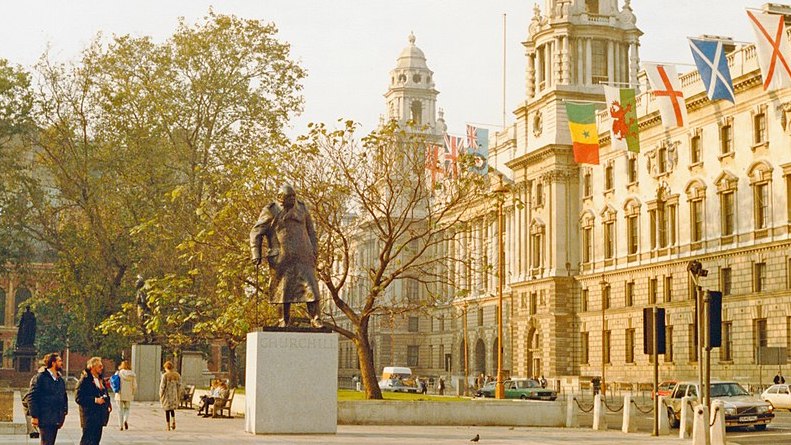
Foreword to a Review of “The Racial Consequences of Mr. Churchill”
“The Racial Consequences of Mr. Churchill”: A Review
The following is my foreword only to an analysis of the recent Churchill College panel, by Zewditu Gebreyohanes and Andrew Roberts. They followed a maxim of Randolph Churchill in the official biography: “I am interested only in the truth.” Every Churchill scholar is in their debt.
Foreword
Eighty-eight years ago Hitler became Chancellor of Germany and the Oxford Union passed a resolution: “That this House refuses in any circumstances to fight for King and Country.” A week later Winston Churchill said: “We have all seen with a sense of nausea the abject, squalid, shameless avowal made in the Oxford Union. We are told that we ought not to treat it seriously. The Times talked of ‘the Children’s Hour.’ I disagree. It is a very disquieting and disgusting symptom.”
Eight decades later Churchill himself is the target of disquieting and disgusting symptoms. Last year the Oxford Union resolved: “This House believes the British Empire is a national disgrace.”Three speakers argued the affirmative. The lone aberrant was the historian Zareer Masani. “I single-handedly contested a blatantly partisan motion and was constantly heckled,” he writes, “with no attempt by the chair or secretary to maintain order.” (Dr. Masani’s doughty riposte can be seen here.)
This year on 11 February, Cambridge, Oxford’s sometime rival, chimed in with a panel, “The Racial Consequences of Mr. Churchill.” The title spins off John Maynard Keynes’s 1925 critique, The Economic Consequences of Mr. Churchill. The difference was that Keynes, a scholar, offered a serious intellectual argument.
The racial imaginarium
Unlike Oxford, Cambridge, didn’t bother to hold an alleged debate. No panelists were historians. One confused Ernest Bevin with Aneurin Bevan. All three, and the moderator, agreed. Sir Winston was a racist basking in the wartime legend he created. The British Empire was worse than the Third Reich.
Herewith two fastidious seekers of truth, Andrew Roberts and Zewditu Gebreyohanes, respond to the Cambridge panel, point by point.

As in 1933, there are those who tell us not to take this seriously. Trimmers who profess admiration for Churchill excuse it by saying that, after all, it’s only free speech. A better description would be flagrant injustice. We can argue all day about the pros and cons of Winston Churchill or the British Empire or the American Founding. If we do it seriously, with respect and intellectual curiosity, we advance our ability to draw our own conclusions.
But “a seat of learning,” as Charles Moore wrote in the Daily Telegraph, “must uphold learning.” To salt a panel with prejudiced speakers, presenting only the negatives, allowing no contrary opinion, is not serious academic enquiry. It is blindness by those who never hear the other side, don’t want to hear it, and don’t want others to hear. It’s character assassination. Or at least, confession of the weakness of the argument.
“If all you have is a hammer…”
The reaction to Roberts/Gebreyohanes was not long in coming. Instead of engaging on any single one of their points, it consisted of pejoratives. They produced “a dishonest and racist paper.” They want “academics of colour who challenge the Empire shut down.” In other words: disagree with us and you’re a racist.
An old saying provides the answer to that: If all you have is a hammer, everything looks like a nail.
Click here to read Roberts/Gebreyohanes.







One thought on “Foreword to a Review of “The Racial Consequences of Mr. Churchill””
Thank you for recalling to our minds the Oxford Union’s infamous episode, not well known among those who ought to know about it. I didn’t know where Churchill had reproached & spoken about it. Leo Strauss spoke of it in his lecture on German Nihilism, which is where I first learned about it. The parallels must be compared and contrasted. British manhood had then within a living memory experience of the Great War. Virtue was still in lavish supply, hidden in untapped resources, which Churchill’s oratorical power mined relentlessly. We are not so fortunate today. too many reasons that would try your patience out to mention.
Comments are closed.